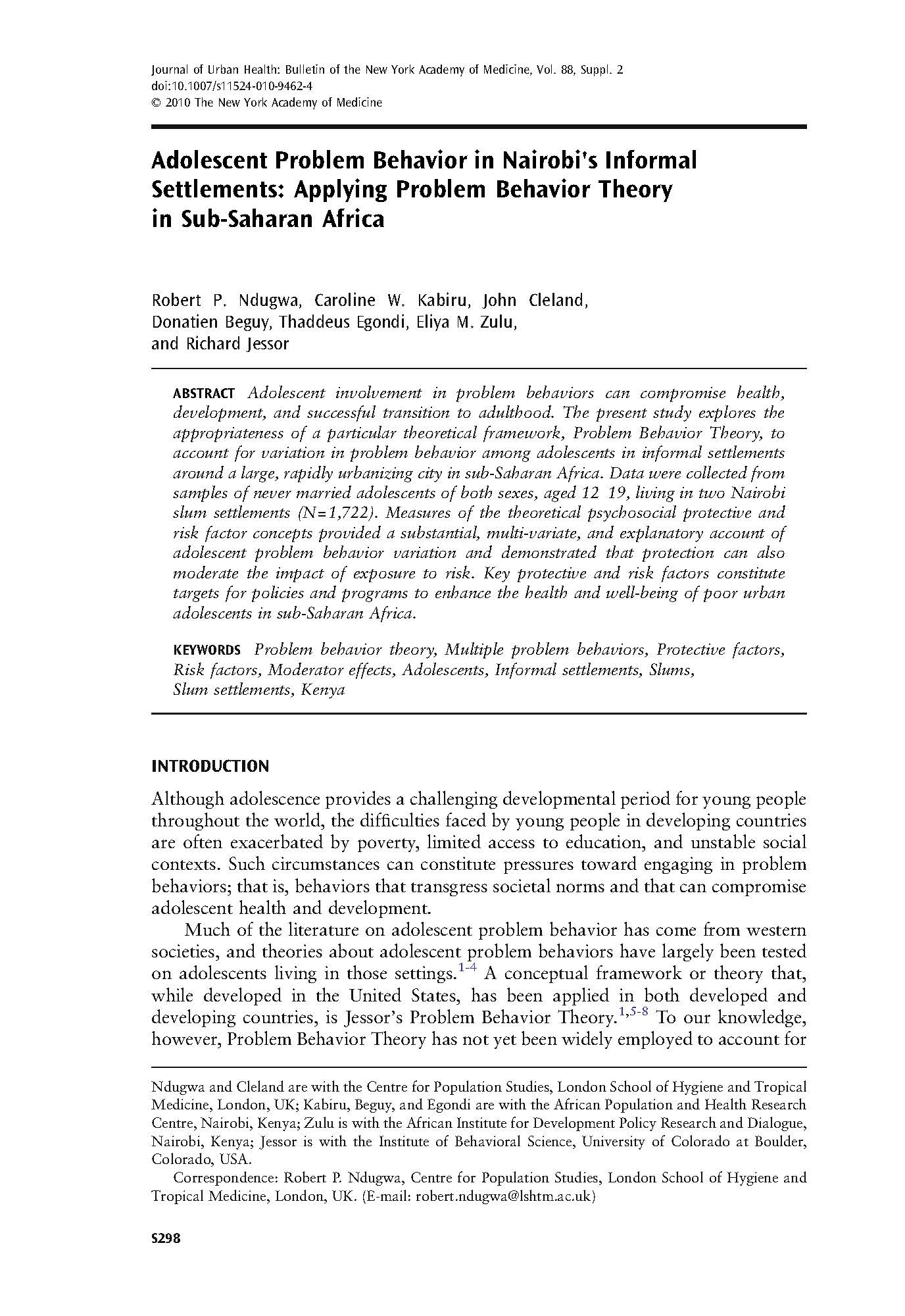
Adolescent involvement in problem behavior can compromise health, development, and successful transition to adulthood. The present study explores the appropriateness of a particular theoretical framework, Problem Behavior Theory, to account for variation in problem behavior among adolescents in informal settlements around a large, rapidly urbanizing city in sub-Saharan Africa. Data were collected from samples of never-married adolescents of both sexes, aged 12–19, living in two Nairobi slum settlements (N = 1,722). Measures of the theoretical psychosocial protective and risk factor concepts provided a substantial, multi-variate, and explanatory account of adolescent problem behavior variation and demonstrated that protection can also moderate the impact of exposure to risk. Key protective and risk factors constitute targets for policies and programs to enhance the health and well-being of poor urban adolescents in sub-Saharan Africa.
http://www.ncbi.nlm.nih.gov/pmc/articles/PMC3132234/
Authors: Robert P. Ndugwa, Caroline W. Kabiru, John Cleland, Donatien Beguy, Thaddeus Egondi, Eliya M. Zulu, and Richard Jessor
Related Publications


